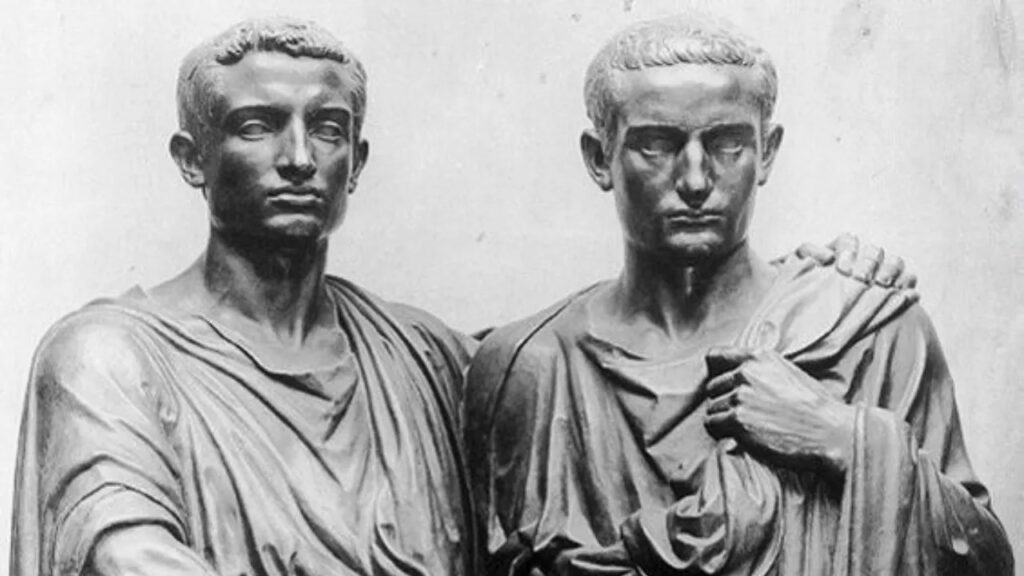
President Abraham Lincoln’s “Gettysburg Address” is a testament to the communications skills that many believe are the greatest words ever uttered by any Commander in Chief. Can any nation conceived in liberty and dedicated to the proposition that all men are created equal long endure? Lincoln was inspired by an event that was eerily similar from Greek history.
Pericles was perhaps the greatest Greek. He delivered a funeral oration to honor the Greek war dead of the Peloponnesian War. It was recorded by a Greek historian named Thucydides and is considered a basic text of Western civilization. Some of Lincoln’s thoughts, no doubt, came from this classical work that Lincoln committed to memory.

The Greeks were the fathers of democracy. They were the sources of what a self-governing people might look like. They put forth the ideas needed for self-rule but they would actually never see a democracy. The seeds, however, were planted. The march toward democracy and liberty began there in Greece. Our nation’s capital pays homage to those Greeks by its architecture which uses the Greek style to conjure up images of “Temples to Democracy.” The Lincoln Memorial is one example among many.
The Romans came after the Greeks, and they learned from them. They took Greek ideas and improved on them. The Roman Republic was another big step on the road to self-governance, but there were issues. The Roman Republic had a constitution which checked the power of the elites while not giving in to mob rule. Our own Founding Fathers certainly considered the Roman constitution and its concepts of checks and balances when writing our constitution.
The Roman Republic was a model of governance that had no equal in its day. Its citizens were very proud of the Republic and each person took their duty to their community very seriously. There was an office in the senate that was created to look out for the common people. The Tribune of the Plebes was the voice of the landless peasants.
It’s very true that Rome utilized slave labor. Some slaves were prisoners of war, others were contraband taken out of conquered territories, and many people sold themselves or family members into slavery to pay off debts. These are the types of enslaved people that the Apostle Paul referred to in the New Testament. He never would have approved of chattel slavery based on a person’s race. He, of course, didn’t approve of the Roman brand of slavery, but it was a fact of life in the Empire of his day.
Tiberius Gracchus was a professional soldier. His bravery was known throughout the Republic as he was the first Roman to scale the the walls of Carthage in the Third Punic War who lived to tell the tale. After his military service, he was elected to be the Tribune of the Plebs. He was sincerely concerned about the commoners. Coincidentally, when the King of Pergamon died, he left his vast riches to the “people of Rome.”
Rome descended into a cycle of reactionary politics that left their founding values in the dust. The commoners and Tiberius Gracchus wanted land and social reform that the Pergamon treasures would buy. This caused the already rich people, many of whom were senators, to vote against and veto anything that the Tribune tried to advance. The political system became hopelessly divided. Whatever one side wanted; the other side saw as “evil.” Finally, as Tiberius Gracchus was debating in the senate, he was attacked by wealthy senators and beaten to death with chairs.
Political violence went against everything that Rome stood for as the primary agent of civilization in the West. The cycle of violence and political antagonism would signal the beginning of the end of the Republic. Ten years later, the brother of Tiberius, Gaius Gracchus, would carry on his brother’s fight. The opposing political forces again proved to be too strong, and Gaius committed suicide rather than be murdered by the opposition who by now was removing freedoms and prosecuting people for being “enemies of the state.”
The reactionary politics would continue another hundred years and would become irrevocable when Julius Caesar crossed the Rubicon and took his Legion into Rome. The wars to follow were Roman against Roman. The Republic’s last gasp occurred when Caesar was murdered on the senate floor by pro-republic senators. This sparked a three-way civil war that played out across the Mediterranean world from the fields of Philippi to the seas off the coast of Egypt. The last man standing was Octavian, the grandnephew of Julius Caesar. He became the first emperor of the Roman Empire and ruled under the name of Caesar Augustus.
The Republic and notions of democracy were now gone-relegated to the dustbin of history along with the Gracchus brothers. Reactionary politics caused the chasm between parties to be too great to overcome. The political parties of Rome had become mutually exclusive and could no longer solve the problems of its vast area and diverse populations. The founding values of Rome that were heavily influenced by the Greeks of old were gone. Political assassinations would become all too common. Crucifixions of political prisoners and petty criminals signaled the loss of any political empathy for “the other side.” Nothing could have been more abhorrent to the founders of Rome.
Mutually exclusive political parties and reactionary politics are the things of nightmares. They introduce a negative spiral and cause the society to collapse under its own divisive weight. Roman wealth and military might allowed their Republic to survive for 482 years. Then the tyranny of a dictator carried the Empire until its wealth and military superiority gave out and the West entered the Dark Ages.
Perhaps a nation founded on the premise that all men are created equal can long endure. Perhaps not.
